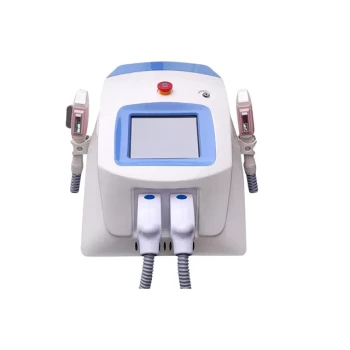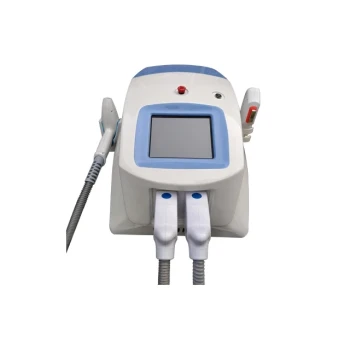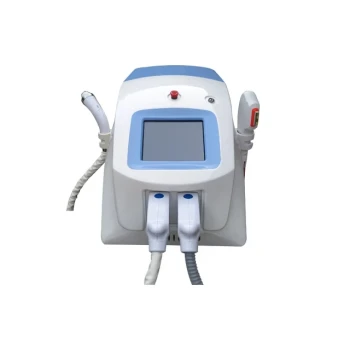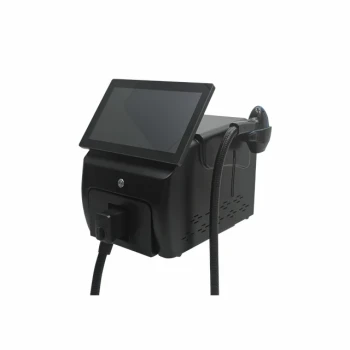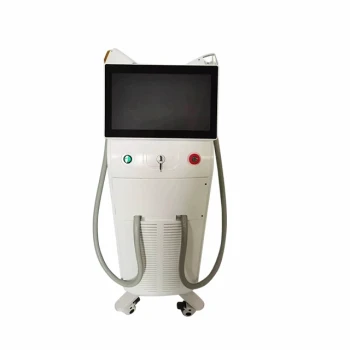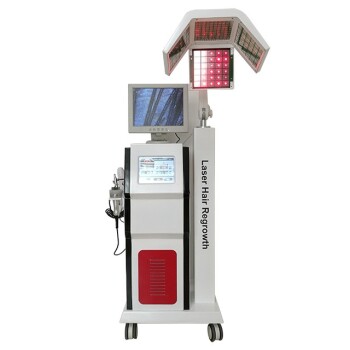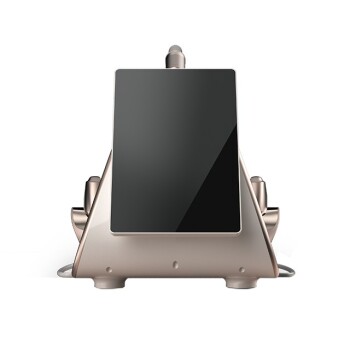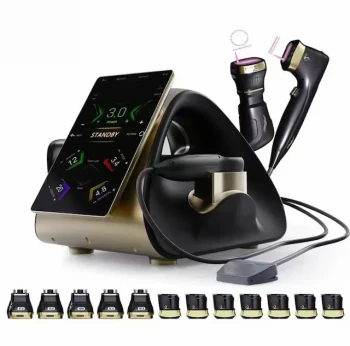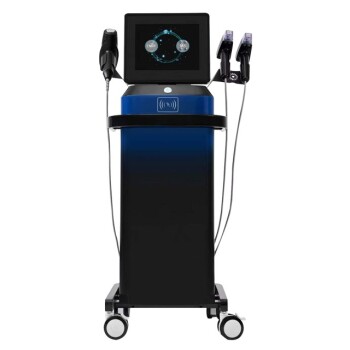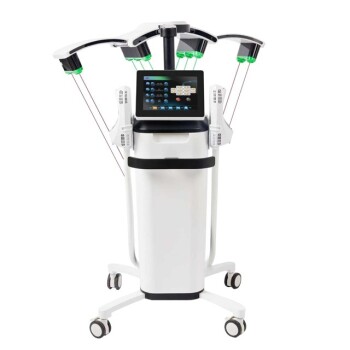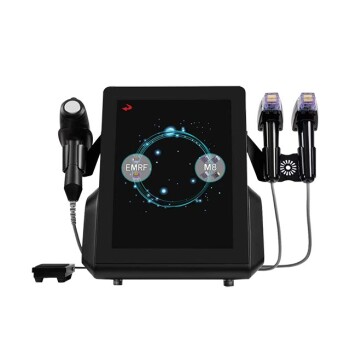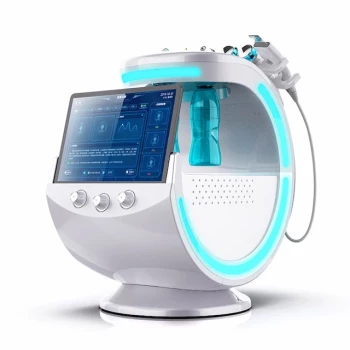While dermatologists perform professional treatments in-office, they often point to specific safety and efficacy features when evaluating at-home devices. Devices like the Braun Silk Expert Pro are frequently noted because they incorporate a critical technology: automatic skin tone sensors that adjust the light intensity for a safer, more customized treatment.
The most important factor is not a specific brand, but the presence of key safety technologies. A dermatologist-recommended device is one that is FDA-cleared and, crucially, features an automatic skin tone sensor to minimize risk and maximize effectiveness.
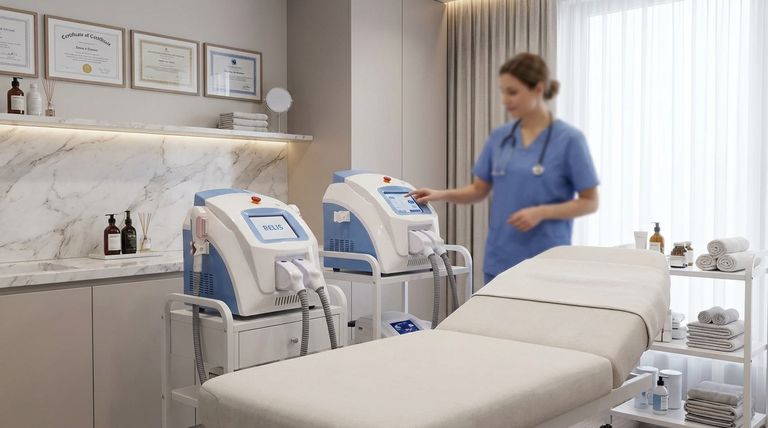
What Makes an IPL Device "Dermatologist-Approved"?
Instead of endorsing a single product, professionals focus on the underlying technology and safety certifications. These are the core features they look for.
FDA Clearance is Non-Negotiable
FDA clearance signifies that the device has been reviewed for safety and is effective for its intended use, which is over-the-counter hair reduction. This is the absolute baseline for any device you consider.
Automatic Skin Tone Sensors
This is the most critical feature. IPL works by targeting melanin (pigment) in the hair follicle. Because your skin also contains melanin, there is a risk of burns if the energy level is too high for your skin tone.
Devices with skin tone sensors continuously read your skin's pigment and automatically adjust the light intensity. This feature, found in systems like the Braun Silk Expert, is a primary reason they are viewed favorably—it automates safety.
Understanding the Difference: IPL vs. Laser
It's important to clarify that IPL is not a true laser. Professional laser treatments use a single, concentrated wavelength of light to target the hair follicle with high precision.
IPL (Intense Pulsed Light) uses a broad spectrum of light, making it less focused but suitable for at-home use. This distinction is why at-home devices are generally safer but require more consistent use.
Understanding the Trade-offs and Limitations
Even the best at-home devices have limitations. Understanding them is key to managing your expectations and ensuring your safety.
It's Not a Solution for Every Skin Tone
At-home IPL is generally not safe for very dark skin tones (Fitzpatrick scale V and VI). The high concentration of melanin in the skin can absorb too much light energy, creating a significant risk of burns.
It Doesn't Work on All Hair Colors
IPL technology is ineffective on very light blonde, red, gray, or white hair. These hair colors lack the melanin needed for the light to absorb into the follicle and disable its growth.
Results Require Consistency and Patience
At-home IPL provides hair reduction, not permanent removal in the way a professional treatment does. Results require a consistent treatment schedule over several weeks or months, followed by periodic maintenance sessions.
At-Home vs. In-Office Treatments
Professional laser and IPL devices used in a dermatologist's office are far more powerful than any at-home unit. They deliver faster, more effective, and more permanent results under the supervision of a trained expert.
How to Choose the Right Device for You
Your final choice should be guided by safety standards and your personal goals.
- If your primary focus is safety: Prioritize devices with FDA clearance and automatic, continuous skin tone sensors to minimize risks.
- If your primary focus is effectiveness: Confirm your skin tone and hair color are compatible with IPL technology before purchasing any device.
- If you are seeking permanent removal: Consult a board-certified dermatologist for professional laser treatments, which offer a more powerful and lasting solution.
By focusing on these key safety features, you can make an informed decision that aligns with professional standards.
Summary Table:
| Key Feature | Why Dermatologists Recommend It |
|---|---|
| FDA Clearance | Verifies the device is safe and effective for over-the-counter hair reduction. |
| Automatic Skin Tone Sensor | Continuously reads skin pigment to auto-adjust intensity, minimizing burn risk. |
| Suitable for Skin Tones I-IV | Designed for safe use on light to medium skin tones (Fitzpatrick Scale). |
| Works on Dark Hair | Targets melanin in dark hair follicles; ineffective on light blonde, red, or gray hair. |
Ready to elevate your practice with professional-grade technology?
For medical aesthetics clinics and premium beauty salons seeking superior, reliable equipment, BELIS specializes in professional medical aesthetic devices. Our expertise ensures you offer safe, effective, and advanced treatments to your clients.
Contact our experts today to discover how our solutions can enhance your service offerings and drive your business growth.
Visual Guide
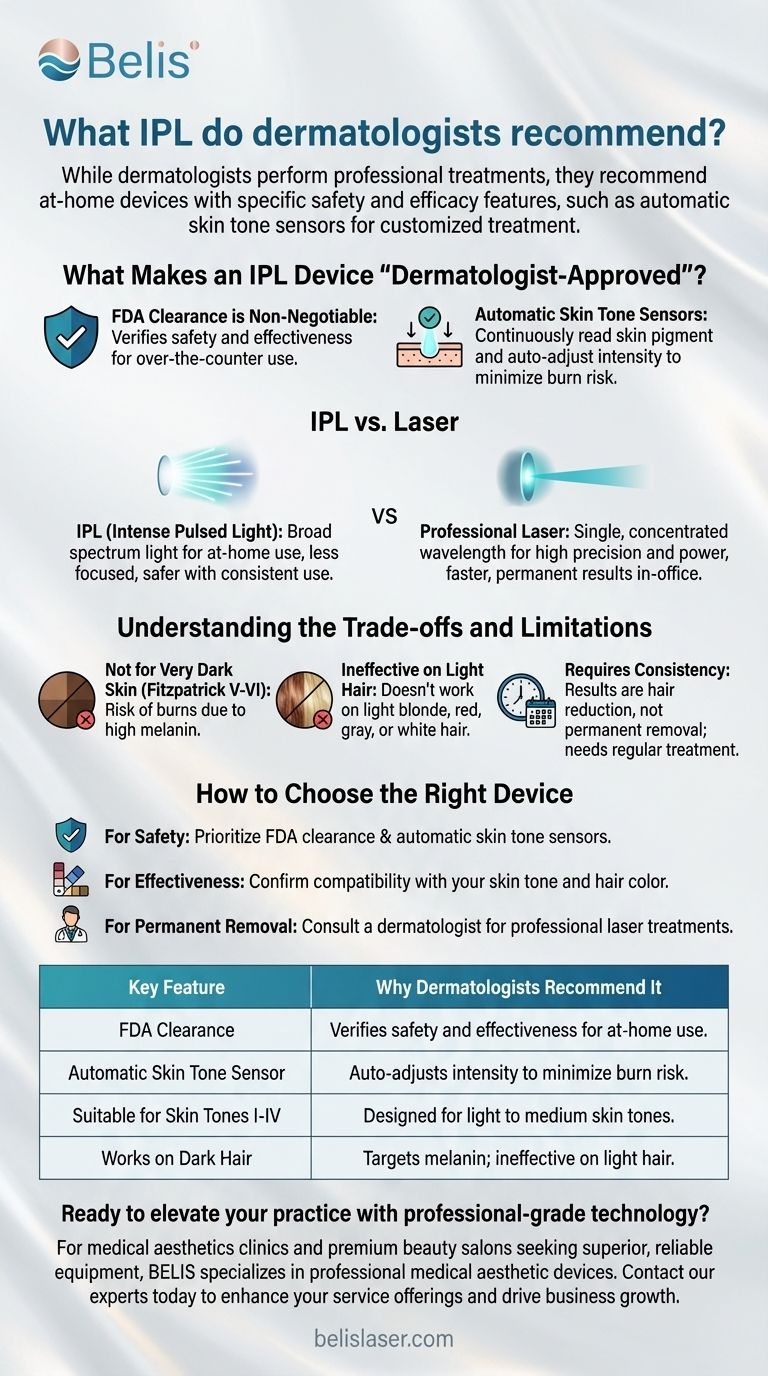
Related Products
- IPL SHR Hair Removal Machine for Permanent Hair Removal
- Clinic Use IPL and SHR Hair Removal Machine with Nd Yag Laser Tattoo Removal
- IPL SHR+Radio frecuency machine
- Clinic Diode Laser Hair Removal Machine with SHR and Trilaser Technology
- Trilaser Diode Hair Removal Machine for Beauty Clinic Use
People Also Ask
- Does IPL hair removal really work? Unlock Long-Term Hair Reduction with Science
- Does IPL work on all skin types? The critical role of the Fitzpatrick scale in safety and results
- What should I look for in an IPL machine? Key Features for Effective Hair Removal
- Can you use hair removal device on private parts? A Guide to Safe Bikini Area IPL
- Can IPL be used on all skin types? Understanding Risks for Darker Skin Tones
